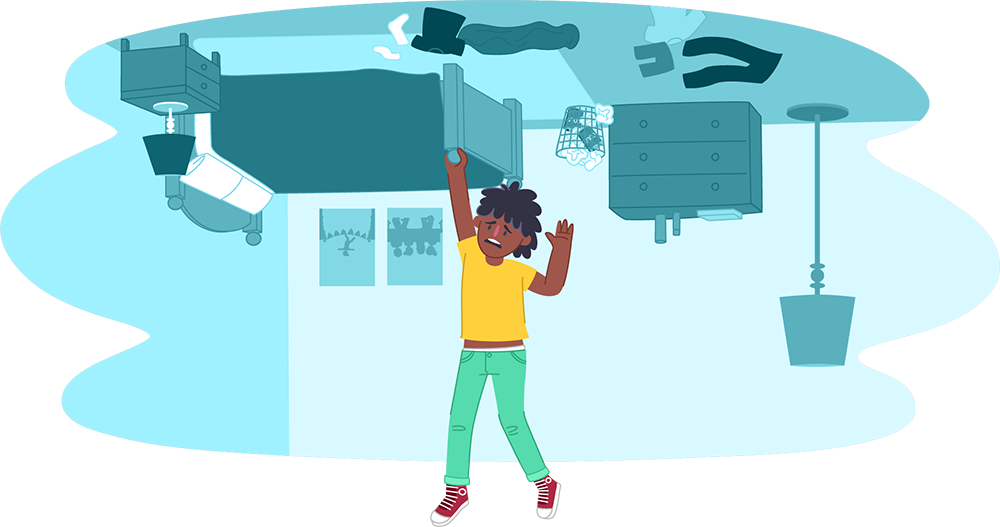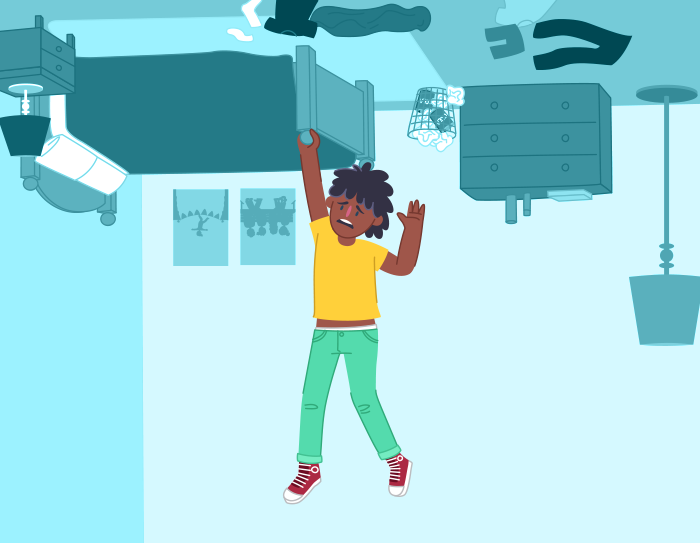What is this big thing called grief?
Losing someone you cared about can be heartbreaking and turn your world upside down. We’re here for you.

What is grief?
It's what happens after the loss of someone or something important to you.
- Grief is a natural reaction to loss
- It’s a journey that affects everyone differently
- Grief can hurt... a lot
- There is no right or wrong way to feel
- Everyone grieves in their own way
- Grief has no set pattern or timetable
Going through grief can help you to deal with and honour what you've lost. If it feels too overwhelming – remember you’re not alone.
Different kinds of loss
Some ways that you can experience grief are:
- Death of a loved one or family member
- Death of a friend or someone you knew
- Death of a famous person
- Loss of a pet
- Parents separating
- Loss of a friendship
- End of a relationship
- Moving away
- Giving up something you love
- Developing a disability
- Having a life-changing illness
- Leaving or moving schools
- Loss of belongings or a way of living
It’s perfectly natural to feel ALL kinds of emotions
Grief can leave you feeling...
Sad
Empty
Angry
Irritable
Numb
Relieved
Confused
Regretful
Incomplete
Guilty
Stressed
Isolated
Anxious
Fearful
Shocked
Overwhelmed
Hopeless
Lonely
Grief can affect you in many different ways
It can affect you:
Responses to loss
You may experience:
Sometimes you might wonder if you'll ever get through this. You will. With time and support, these feelings will change and you will learn how to cope with your loss.
Check these out too:
Expressing your feelings
Expressing how you feel can help you cope when life throws you ...
READ MELooking after yourself
If you’re juggling lots of things like work, study and relationships, ...
READ MEAll about depression
Everybody’s heard of depression. It’s more than just sadness; it’...
READ MECoping with emotions
Whether you’re dealing with anger, sadness, frustration or anxiety - it’...
READ METalking helps! We’re here for you.
No problem is too big or too small.
We're here 24 hours a day, 7 days a week






